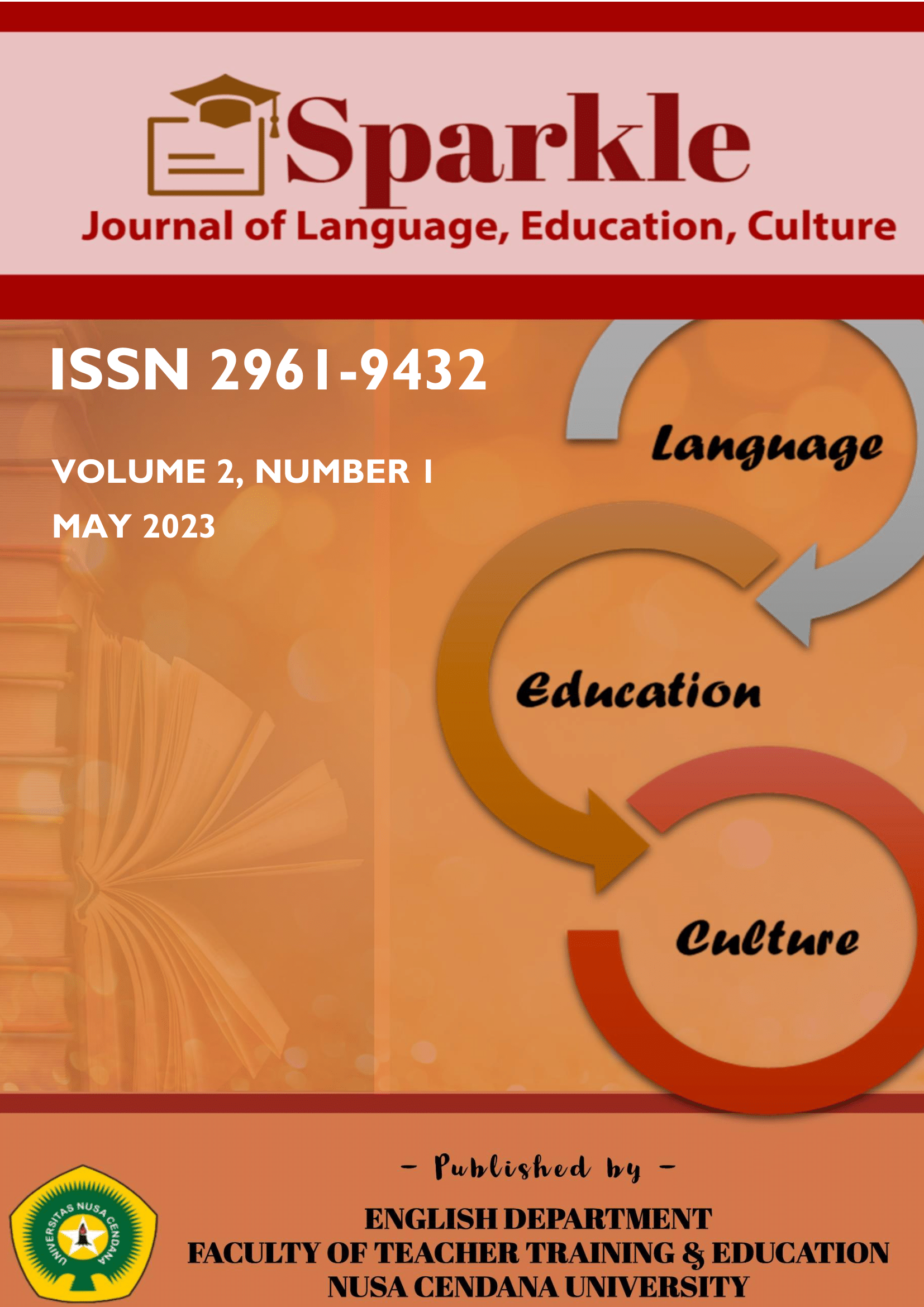NAMING TRADITION IN LEWOKLUOK COMMUNITY WITHIN LAMAHOLOT SOCIETY OF DEMON PAGONG SUB-DISTRICT EAST FLORES REGENCY
Abstract
This article presents an analysis of naming tradition practiced in Lewokluok community within Lamaholot society of Demon Pagong Sub-district, East Flores regency. The analysis is based on research conducted upon the subjects (community members) living in Lewokluok community. The aim is to analyze the naming tradition including name components and patterns of personal name used among the people within the community. It also analyzes cultural and religious values contained in a name as the factors influencing parents’ decision in giving their children’s names and identifies the common names used throughout the community which have been practiced from generation to generation. The study used descriptive qualitative method and the subjects were taken from the native people living in the community. Data were gathered through interviews using open-ended questions, and recordings were conducted when the interviews were in progress. Documentation and note-taking were also used as techniques for data collection. In this case, official documents in forms of certificates and baptism letters of the subjects were cautiously noticed to get the data on formal names, while note-taking was applied to highlight important matters related to the naming tradition. The result of data analysis shows that a complete name used in Lewokluok community consists of three main components: local name, clan name and baptism name. It was also found that the way of personal naming tradition in the community comprises five patterns, viz: (1) child’s Local Name + Father’s Local Name; (2) child’s Local Name + mother’s Local Name; (3) Child’s Local Name + Clan Name; (4) Baptism Name + Local Name; and (5) Child’s Baptism Name + Local Name + Clan Name. Cultural values are reflected through local names and clan names while religious values are reflected through baptism names.

 Alexander Home Kabelen(1*)
Alexander Home Kabelen(1*)

